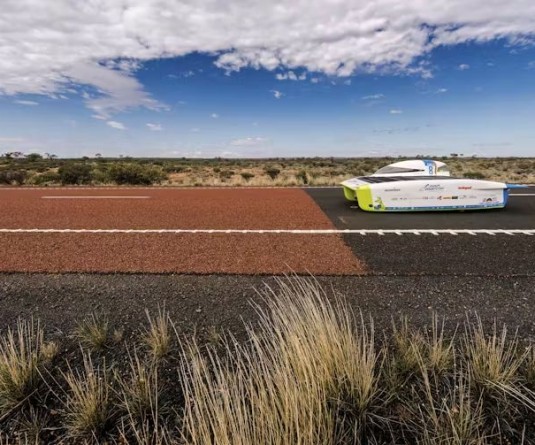
I remember when I was in College I could wake up, brush my teeth, wash up and pick my least wrinkled clothes, and reach class in under 10 minutes. It took me just five minutes to get ready, another five to catch transport and reach class on time. Getting an extra five minutes of sleep was more important than food for me those days. Of course, even though I usually missed breakfast, I always made up for it by having twice as much at lunch. Alas... I pity the students trying to do that in our state right now.
Despite living in this new modern age of high speed internet, fancy cars and sleek cell phones, students of Nagaland can forget about trying to reach class in 10 minutes. In fact, some students can probably forget about even using their own car to reach class on time. With bridges around us, either collapsing or on the verge of it, students dependant on it to reach their destination on time, probably need to climb, run and swim to their schools and colleges. If a student is being dropped by their parents by car though, it gets even better. They get enjoyable forced family time for up to 3-4 hours while using our national highways to reach their destination. Idea: If you want to have a long meeting or conversation with someone then take a car, and ask them to accompany you from Dimapur town to Chumukedima. It is just as fun to travel the Kohima - Dimapur National Highway (National Highway?!... you got to be kidding me) because you get this amazing sense of accomplishment that you actually managed to reach your destination. I am sure many people with SUV’s have been able to traverse this great national highway at faster speed and times but I heard taxi’s can take 5 hours at two to three times the cost. To be fair, I shouldn’t be so partial and rant on roads. There are so many other government departments doing just as well, if not better (sarcasm intended). We are in the news for our police department, education department, supply and I think I recall a whole bunch of names for Illegal appointments (?) for various Assistant Professor positions at some of our higher educational institutions.
The amusing thing is, we have a very convenient scapegoat for all of these problems… the PUBLIC. We are all to be blamed, we took money during the elections, we can’t think beyond tribalism, corruption is a way of life… etc. I quote a part of my Facebook Friends status here “When we say that the public is also to be blamed for the messy situation we are in, does that mean that the baby girl who was born last night in a remote village in Myanmar border is also to be blamed?” He also points out that using this as an excuse to legitimise corruption is just not valid. It makes sense because the magnificent personal mansions, cars and whatever the corrupt acquire during their time in power does not revert to the public again. Logically speaking then, rather than using the public as a scapegoat, shouldn’t the public blame the authority who has the power and position to take decisions?
What we are experiencing today is not something that has happened overnight. It is the fall out of years of corruption. It is almost scary to read the views and expressions of unadulterated emotion on social media. The sarcasm and mean humour of our leader’s memes circulate fast and thousands probably silently lurk and while a few boldly comment. Back in the real world though, we seem to be comfortably silent. Many Non Government Organisations are silent in the print media and their leaders do not seem to take a stand often enough, nor seem to be able to work together to get our government to fulfil its own duty. The government also has often remained silent on critical issues and adopted a silence on sensitive issues. So, how does a common man get heard now if NGO’s only echo the view of the government or remain comfortably silent? It would almost seem that many of the NGO’s have some political affiliations and many influential people are scratching each other’s back.
To be fair, our leaders have their work cut out for them. It is not always easy to be a leader, especially in Nagaland. The current system of governance seems to propagate the loyalty system, albeit a unique loyalty system that may be called the “short term loyalty system”. If you are “loyal” to the leader then there are better chances of stealing from government funds, if you are related then you have an in-born right to have special privileges or make taller demands. People believe the ministry takes cuts for every project, people don’t really trust the bureaucracy, our infrastructure is crumbling, unemployment is a ticking time bomb. How do we even get out of this mess?! Will deft political manoeuvring and changing of portfolios actually fix the roads and improve our economy? Technology is advancing so rapidly that it has already begun to outpace the law and regulations. Confidential official documents are being widely circulated in social media and government decisions are now kitchen talk among one and all. In this type of environment where every move of our leaders is being brought out to the open, under micro scrutiny, to be questioned, dissected and also challenged, can our leaders hope to appease the entire population by doling out sops and favours to a select “loyal” few?
It is not easy to be a leader in Nagaland, but if someone truly wants to be a leader then maybe it is time to start leading and providing solutions. Everybody already knows what the problems are. The government is a powerful entity which greatly impacts the economic, health and education policies of the public. Our leaders need to hold themselves accountable for the current state of affairs we are currently facing. It is they who take the final decisions and not the public, the public has absolutely no direct say over many of the policy decisions they make. We expect our leaders to represent us at the Centre and likewise our MLA’s to represent us at the State Legislatures. We expect our leaders to fight for our basic necessities… not fight among themselves. If Nagaland is going to get better then I think leaders need to realise they need the respect of the public. Having power alone will not be enough to get TRUE respect. But respect is earned. Never given. It is time to hear and see them acting on their promises and word. If things keep on going in this manner then I fear the so called public will not always remain comfortably silent.
Degree of Thought is a weekly community column initiated by Tetso College in partnership with The Morung Express. Degree of Thought will delve into the social, cultural, political and educational issues around us. The views expressed here do not reflect the opinion of the institution. Tetso College is a NAAC Accredited UGC recognised Commerce and Arts College. The editors are Dr Hewasa Lorin, Anjan K Behera, Tatongkala Pongen, Nungchim Christopher, and Kvulo Lorin. Portrait photographer: Rhilo Mero. For feedback or comments please email: dot@tetsocollege.org.





